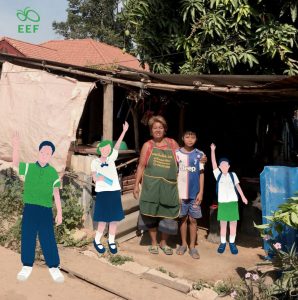
How seed funding from the Equitable Education Fund (EEF) has turned grandma Sombat from scavenger into micro entrepreneur and is now able to earn enough income to provide for her proud grandson.
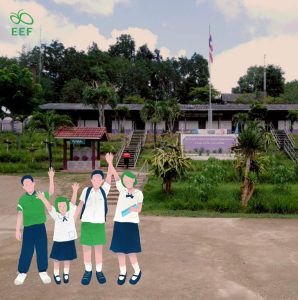
Many students at Ban Phraek Takro School, an hour drive from the tourist town of Hua Hin, would have stayed home to help their parents work in the field. Thanks to special grants from the Equitable Education Fund (EEF), these children from hilltribe families are now in class, not just learning Thai but also useful skills, such as weaving.
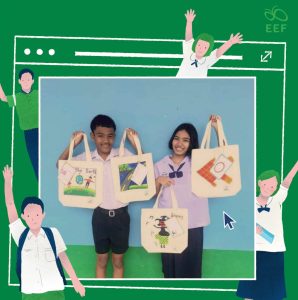
At Ban Khlong Ro School in Surat Thani, concerns of global warming motivate a group of students to make “save the earth” cloth bags to help lessen plastic waste. With assistance from the Equitable Education Fund (EEF) and partners, the pupils learn how to produce quality products and market them online – skills they should find useful after they leave school.
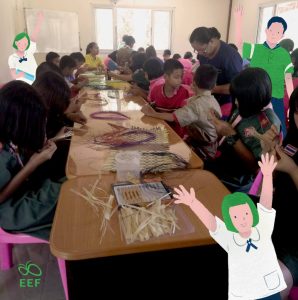
The traditional craft of bamboo weaving at a northeastern school suddenly took a more innovative turn after the school joined the network of schools for an equitable education program. Pupils at Ban Nong Noktha School in Ubon Ratchathani learn about product development, designing and marketing. New products include beautifully crafted pens that showcase the region’s art heritage.
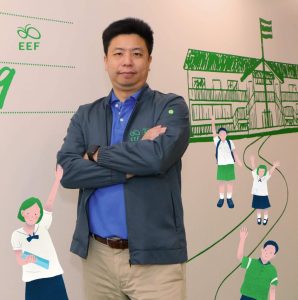
The novel coronavirus pandemic hits the most marginalized sector of society particularly hard. The number of pupils suffering from extreme poverty has increased by 17% from the previous academic year with each person in a household subsisting on an average income of only 36 Baht a day. Ensuring this group of children receive education as a survival tool is more important than ever before.
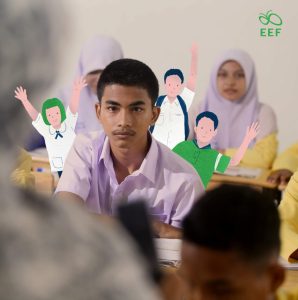
Little education, not enough income, and no future – this summarizes the life of many young people. A Yala native – 17-year-old Houdoibi – dropped out of school before finishing 8th grade. Multiple odd jobs took him nowhere. Luckily for him, an informal education teacher with aid from EEF came to his rescue just in time. He’s now happily back in school.
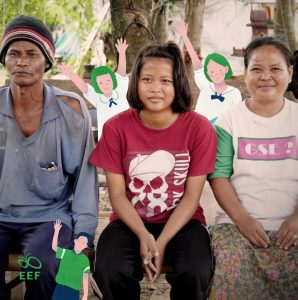
Janya Khongsi really wants to go back to school. The 15-year-old girl from Surin was forced to drop out since she was eight after her old school near home was closed. The nearest school was far away away in town. Now she is going back to school, thanks to the Equitable Education Fund (EEF). “If I ever go back to school, I will try to achieve my dream…. I’m so excited,” Janya says.
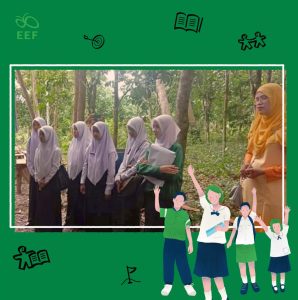
Poor, fatherless with a mentally disabled sibling, Magruesong Buerahang from Narathiwat had no hope of furthering her study after high school even with good grades. But hope and faith are restored after she received a scholarship from the Equitable Education Fund (EEF). She’s now a freshman at a vocational college.
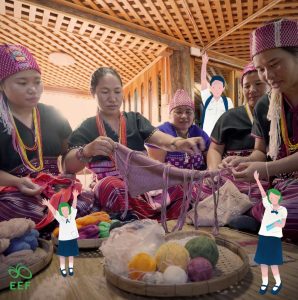
What can an occupational development project do for low-income women from three Karen hilltribe villages in Chiang Mai? It teaches them traditional weaving and dyeing. But that’s not all. The projects funded by the Equitable Education Fund (EEF) are also credited with creating great camaraderie among the participants as well as conservation of local culture and natural environment.
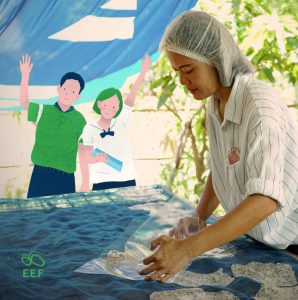
Most farmers are poor and have few skills to compete in the modern world. Intent on filling the gaps, a team from Kasetsart University Sakon Nakhon trains a group of organic farmers on the science of low-cost farming, food processing and digital marketing, with a focus on improving local knowledge. “This is a very practical project,” said a trainee. “We learn the skills we can actually use in our work.”
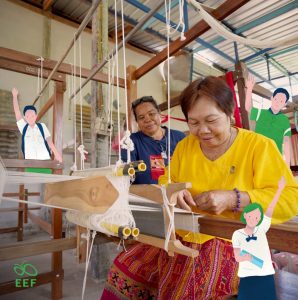
Any skill or knowledge, if not practiced, tends to fade, then disappear. In Uthai Thani, a community college has found that teaching the traditional art of cloth designing and natural dyeing is not just good for preservation of valuable local wisdom. It also leads to discovery of new teaching methods, new cloth designs and restoring job-creating skills for non-formal workers.
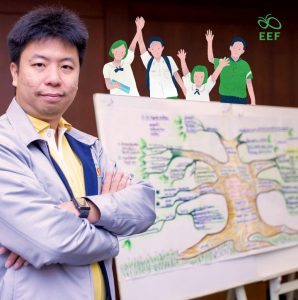
Inequality in education is a complex, multifaceted problem. Income inequality is compounded by the country’s geographical diversity which makes quality education inaccessible to a great number of people. The Equitable Education Fund (EEF) was initiated to specifically address the issue. But the public sector cannot go it alone; the private sector has an important role to play as well.
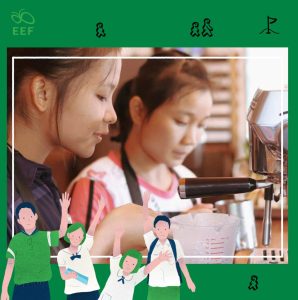
How to motivate children from extreme poverty backgrounds to stay in school and away from drugs? A daunting task, but a school serving a hilltribe population on the northern highlands has been dealing with the challenge with considerable success. The key is occupational training in multiple disciplines, made possible by grants from the fund for equality under the Equitable Education Fund (EEF).
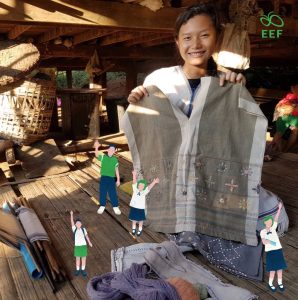
For highland villagers, selling goods to lowland people is both exhausting physically and not cost effective. Selling online provides an answer. A project funded by the Equitable Education Fund (EEF) makes it possible for three Karen communities in Chiang Mai. Besides learning online marketing skills, the communities get to preserve their way of life and help protect the forests.
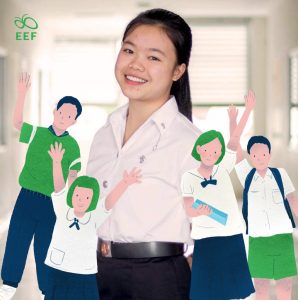
Inthira Sukjai is determined to return home after graduation – not just to stay, but to teach. Born to a poor hilltribe family, the education major freshman at Chiang Mai University has come a long way, thanks to the project – Khru Rak Thin – funded by the Equitable Education Fund (EEF) to return new teachers back to their home communities.
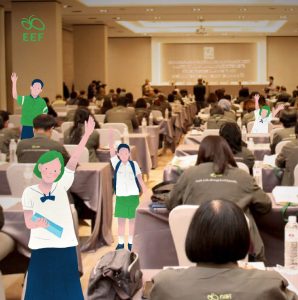
Returning education graduates to their home communities has proved to be a key in developing rural schools and benefiting students. The success of the Khru Rak Thin (Teachers Return Home) project has convinced the Equitable Education Fund (EEF) to launch its second phase. Focus is placed on quality of institutions producing the teachers.

“Ball” wants to be a piano teacher.“Ploy” wants to be an English teacher. Their aspirations are possibly shared by thousands of other students. The only difference is both are blind. Under the sponsorship of the Equitable Education Fund (EEF), they as well as more than 42,000 other students with disabilities countrywide will be supported in their endeavors to reach their goals.
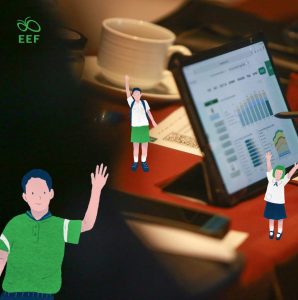
Education is one of the areas receiving the highest national budget. Then, why is the country still struggling to establish an equitable education system for all? Perhaps, a good accounting system can help pinpoint areas of deficiency to ensure no one is left behind, no matter how poor or remote they are.
Leave A Comment